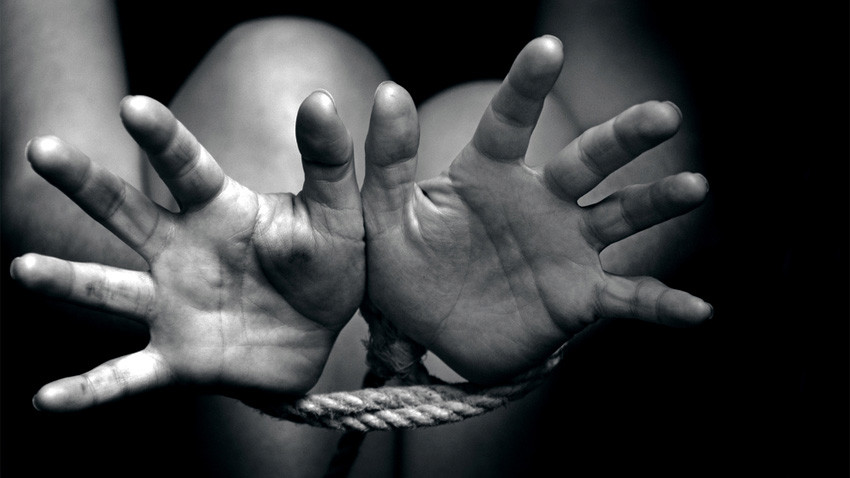The victims of human trafficking in Bulgaria in 2022 were more than 150, according to data of the prosecutor's office. These are just the reported cases with ongoing pre-trial proceedings. The actual number of victims remains a mystery, but the problem with this type of modern slavery must not be underestimated. Experts advise people to exercise vigilance and not trust promises for quick and easy income. But if we fell into a trap, we could seek help through the National Human Trafficking Hotline. Calls to 080020100 are possible from anywhere in Bulgaria and the EU, they are completely free and anonymity is guaranteed.
Experts on the line also offer their assistance against one of the most common ways of attracting new victims of human trafficking - the fake job ads we find on social networks. Experts can check the credibility of the posts and tell the job applicant of possible hidden pitfalls.
Last year, over 1,000 calls were registered on the national hotline, as 42 of them were from victims of trafficking, we learn from Monika Nikolova - head of the "A21" Foundation that manages the 24-hour National Hotline combating human trafficking.
"People looking for a new life outside the country are very easily attracted by various job offers in construction, agriculture or some other sphere. A salary of 1000-1500 euros sounds like an extremely large amount to them. However, they often forget that the standard of living in the respective country is completely different and the costs are much greater,” Monika Nikolova has told Radio Bulgaria. “Following their ‘dream’ they come across people who tell them that they could leave immediately, work and receive the specified salary. Upon arrival, however, they are housed in inhumane conditions, made to work without breaks from morning to night with no access to the outside world. When a person finds out that something is wrong, they try to get their money and leave. However, it turns out that they have already become debtors to the employers, as they paid for the ticket and provided food and accommodation. The amount the worker has to pay back is usually huge and they can't leave until they pay the money.''
A sign by which we can recognize such trap ads is the speed with which the so-called employer gets in touch and the opportunity to leave the next day or the same week, since the ticket and accommodation are already secured.

Monika also tells us about one of the most common techniques used by traffickers looking for their next victim who can be of any gender and social status:
"There are people who have fallen victims of human trafficking schemes for sexual exploitation after a romantic relationship. Social networks predispose and enable the traffickers to easily find their next victim. They establish contact, start talking, flirting. Gradually the trafficker begins to isolate the girl from relatives, friends, to control her as much as possible and the two may even start living together. Courtship sometimes lasts a long time and might even be followed by marriage. After that exploitation starts. The victim is told that that they would work abroad, collect money and return home, where they would live a wonderful life."
Speaking about the recent case from Stara Zagora, where a girl was disfigured by her boyfriend, Monika Nikolova says she sees characteristics related not so much of domestic violence but to another type of crime – human trafficking for the purpose of sexual exploitation.
"This is about cruelty and torture that is quite cold-blooded and reminds us of other cases involving victims of trafficking for sexual exploitation that we have worked on. They were brutally tortured and left with numerous physical scars. They remain alive but are nearly erased as humans,” the director of the A21 Foundation says. “Very often this is also done to intimidate the girl, if she dared to say that she wanted to leave because she did not want to do this. A brutal beating follows to remind the victim that even if she wants to escape, this is no longer possible. Often such a beating also serves as an example for the other girls to know that they could be next one if they decided to run away."

See also:
English version: Al. Markov
Photos: coe.int, Pixabay
The nature protection organization WWF - Bulgaria is launching a campaign entitled "Subscribe to Nature". The disappearance of wild animals is a series in which we play the main role. In less than one human lifetime, 73% of vertebrates in..
The Embassy of France and the French Cultural Institute brought together scientists to present their experience and the scientific challenges in Antarctica, as well as the fight against climate change. Partners of the event were the..
The Buzludzha Monument will be the set of a Hindi film production. A team of 100 people have arrived in Kazanlak for the filming of "Good Bad Ugly", which stars famous actor Ajith Kumar in the lead role. The film is being shot in..
Two graduates of the Bulgarian School "Saints Cyril and Methodius" in Jordan presented their achievements at an event at their school "Hadi al Muhammadi"..
1000 participants will take part in the first Burgas Half Marathon, which will take place this Sunday, 24 November. The event will bring together..
Radmila Sekerinska from North Macedonia appointed NATO Deputy Secretary General NATO Secretary General Mark Rutte has appointed Radmila Sekerinska..

+359 2 9336 661
